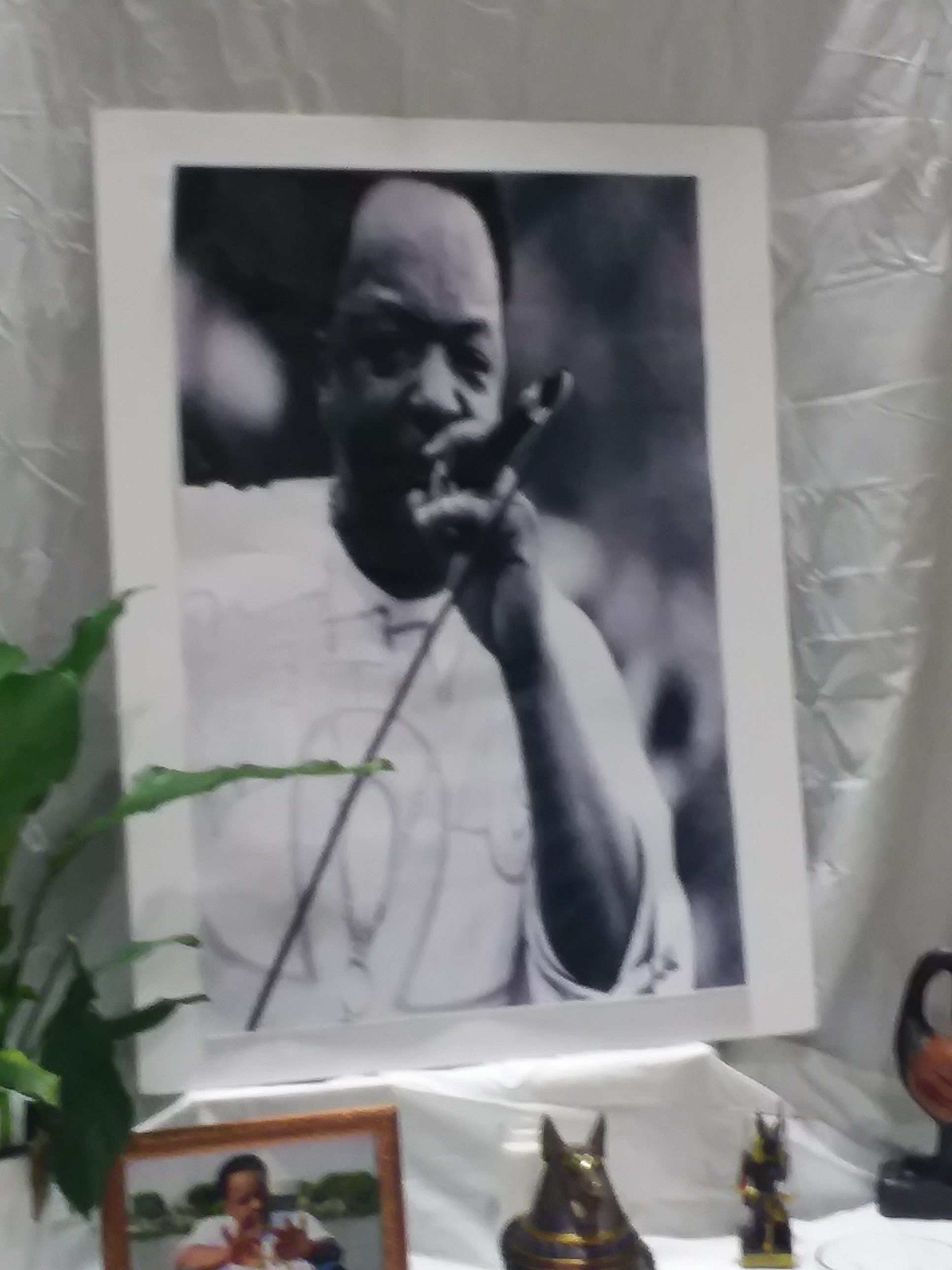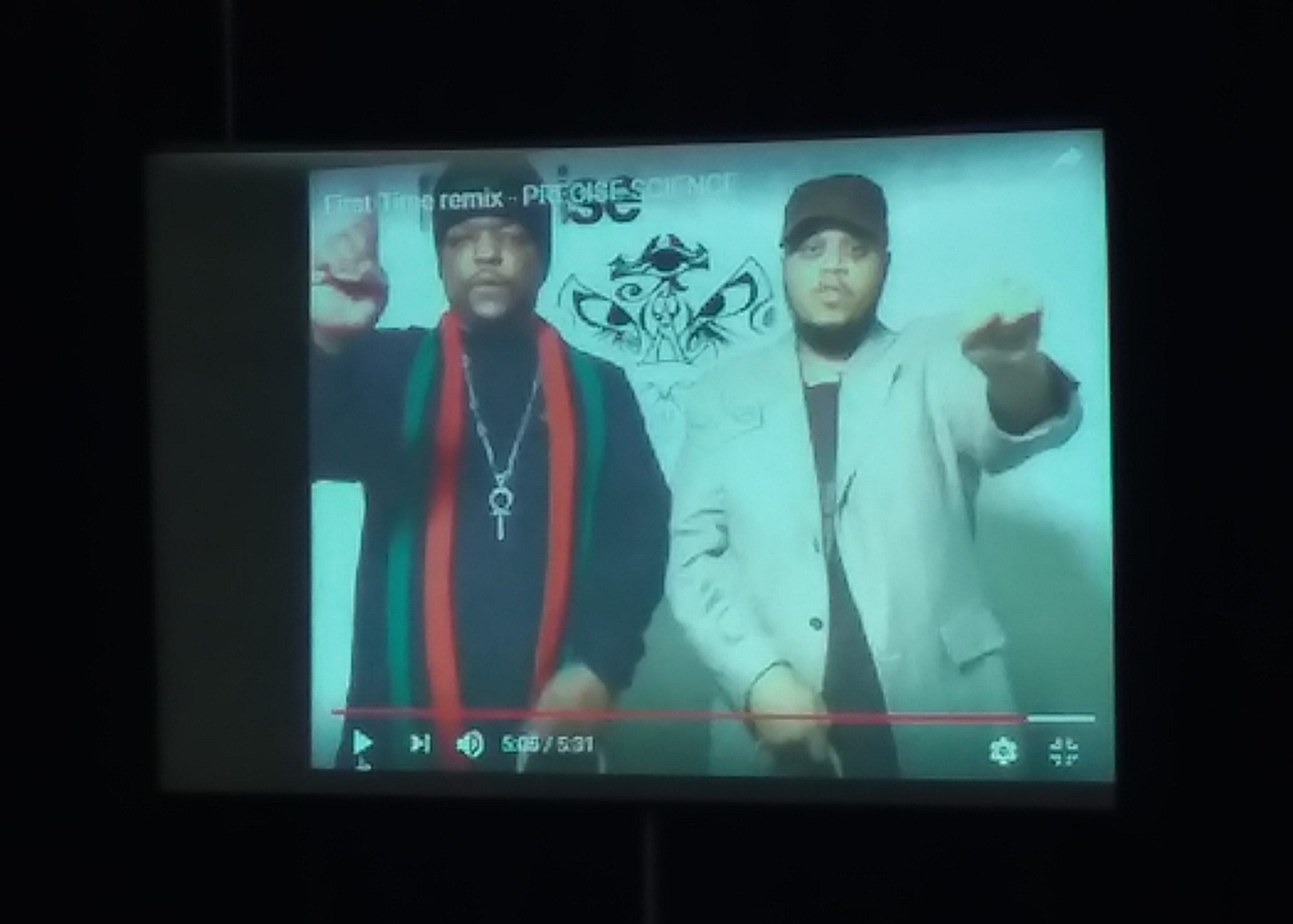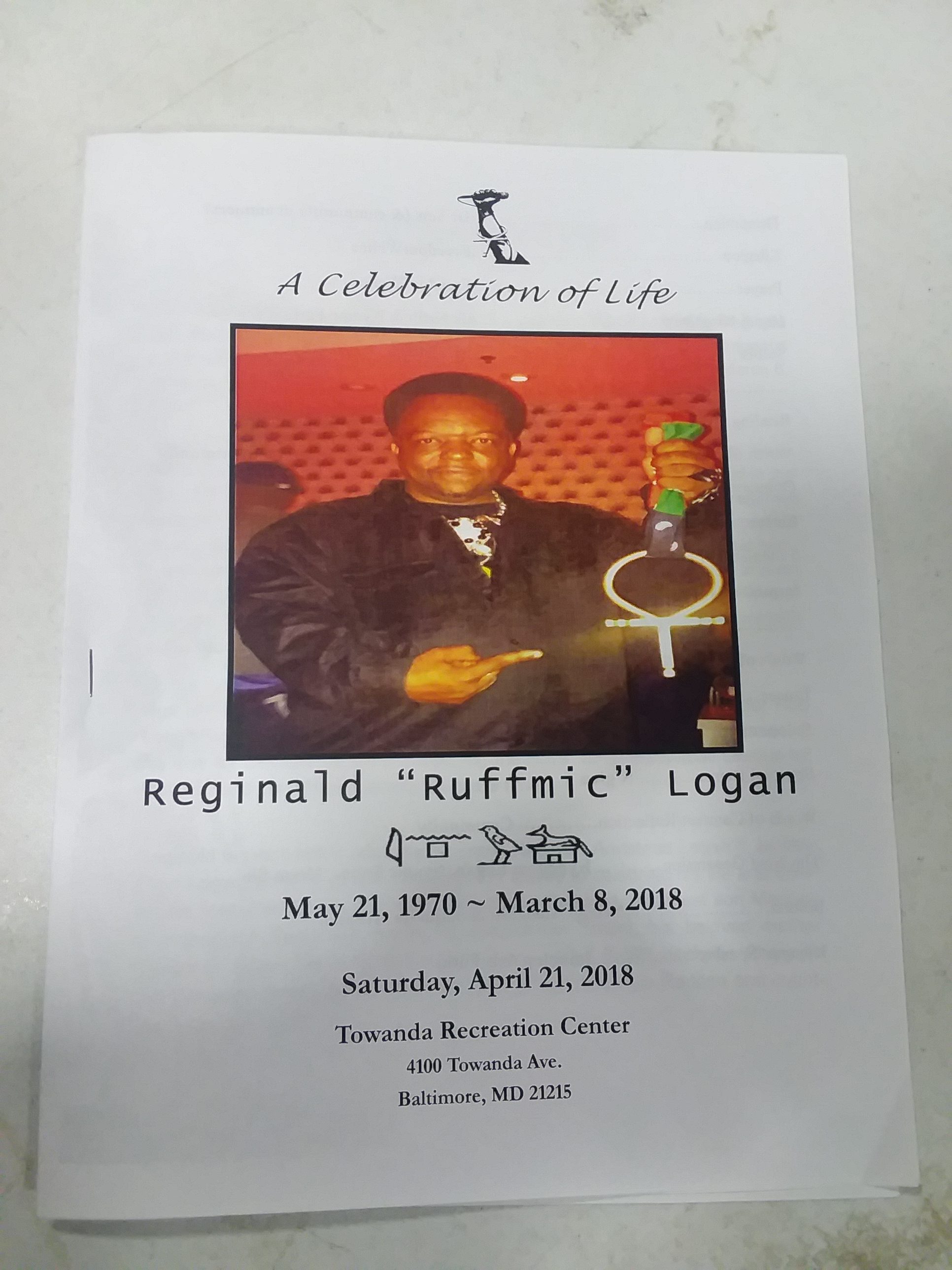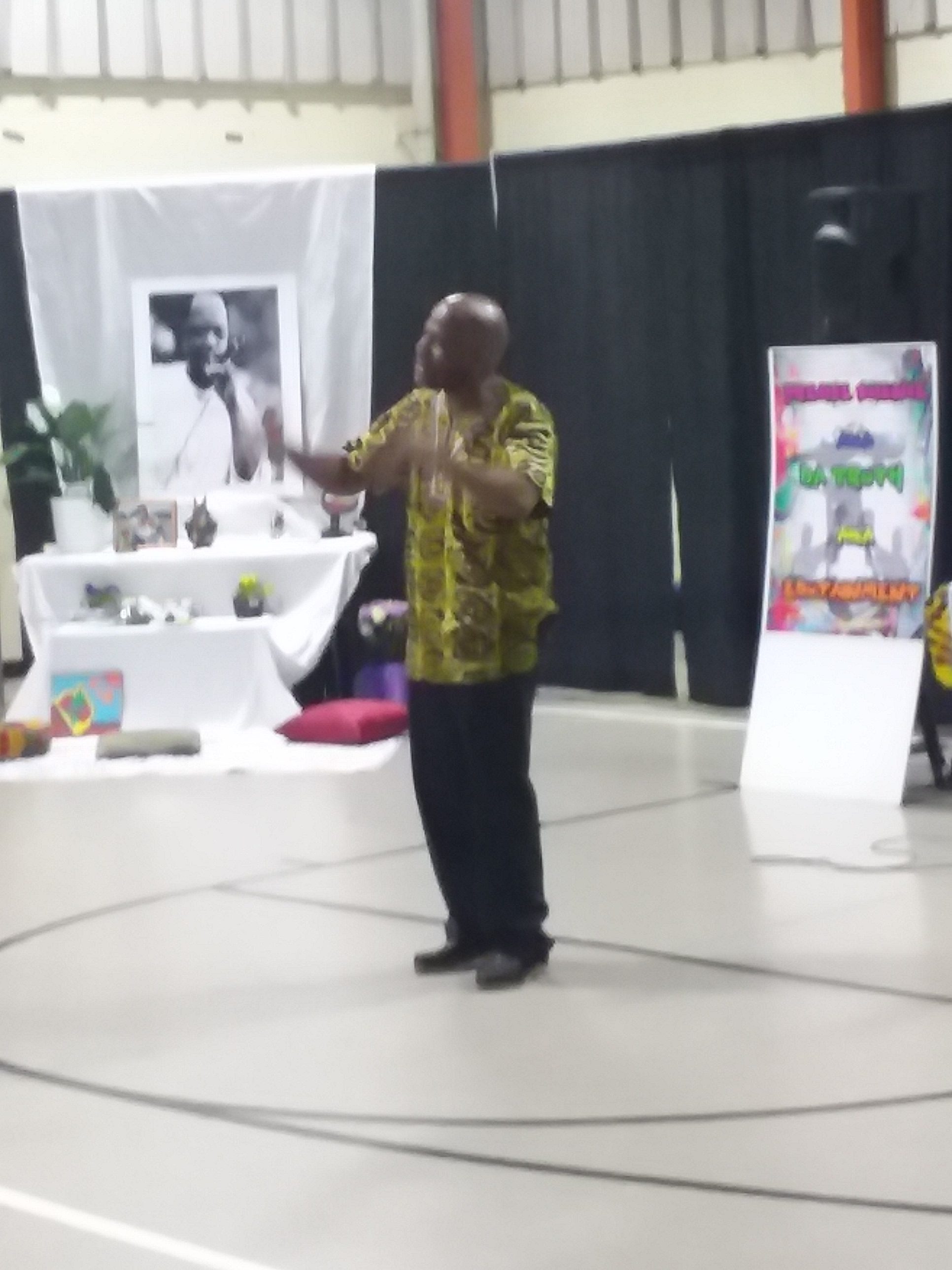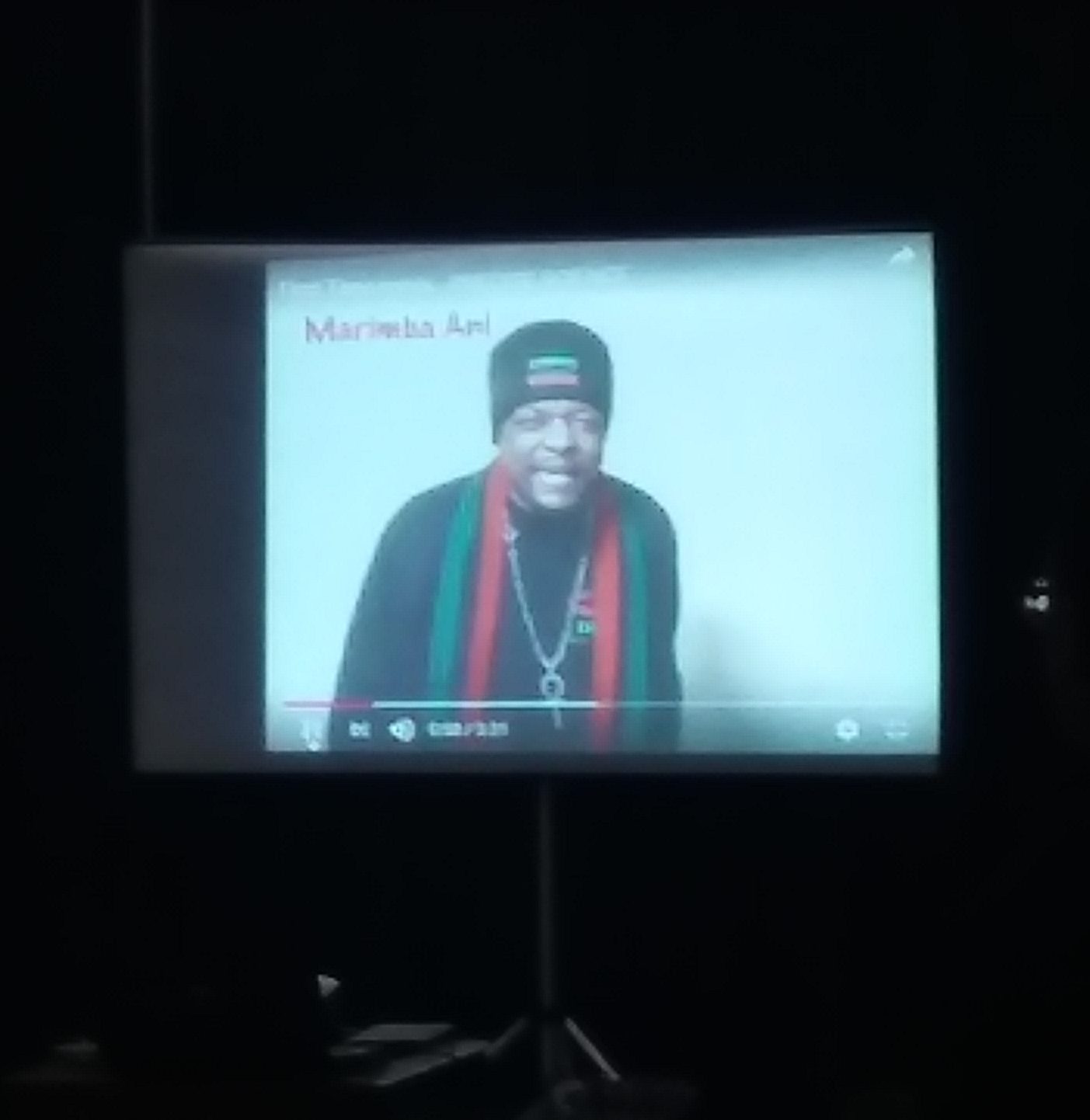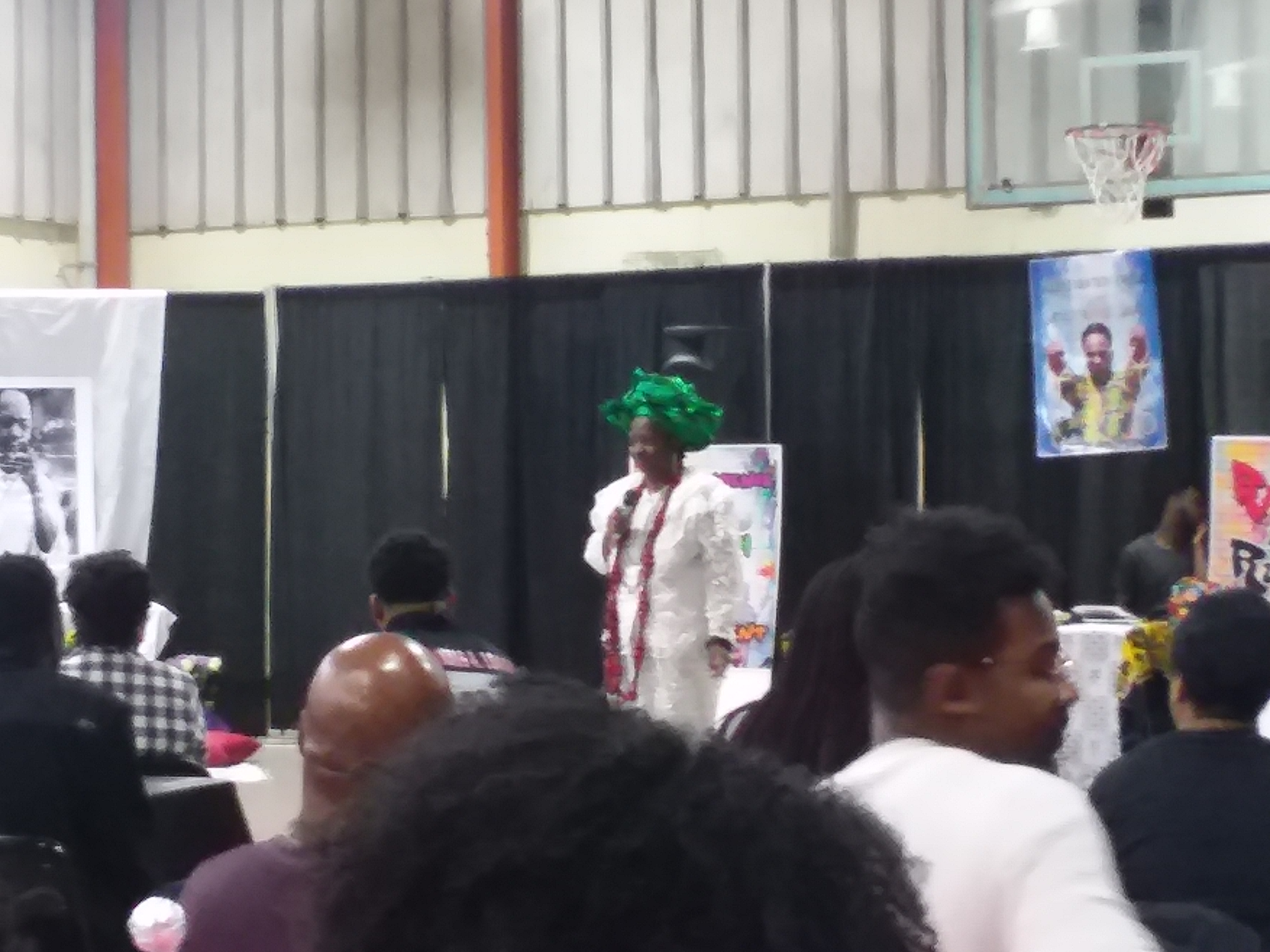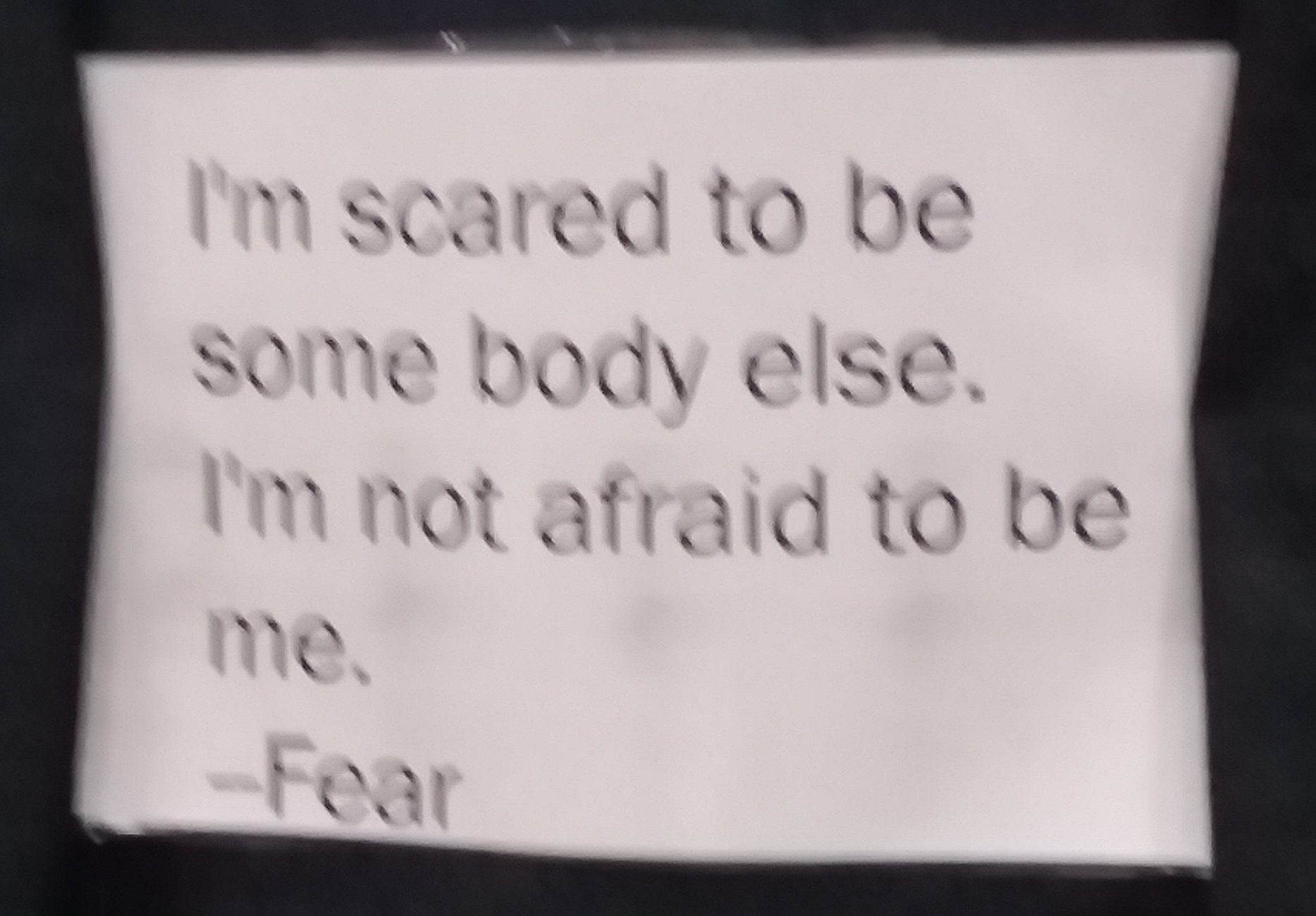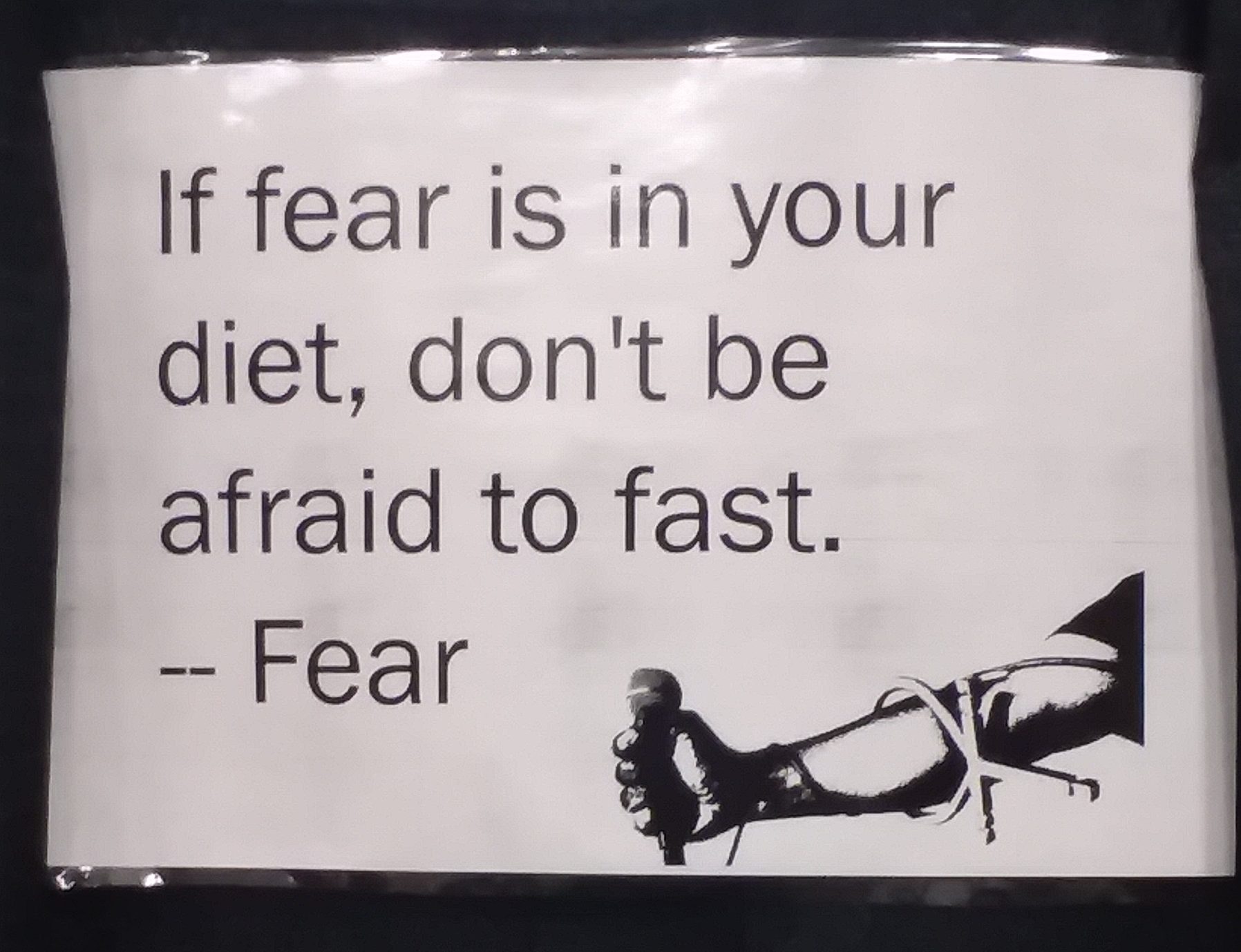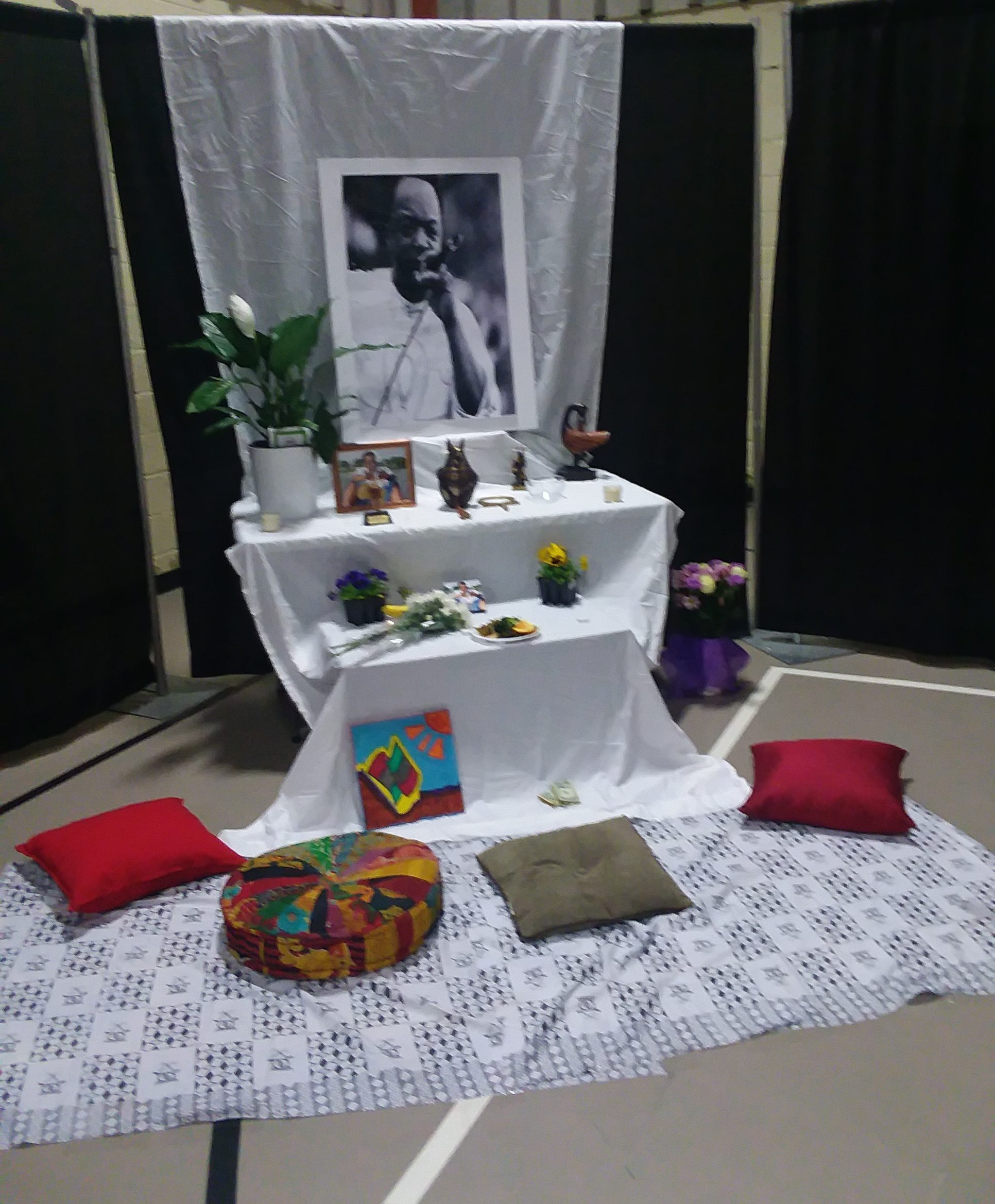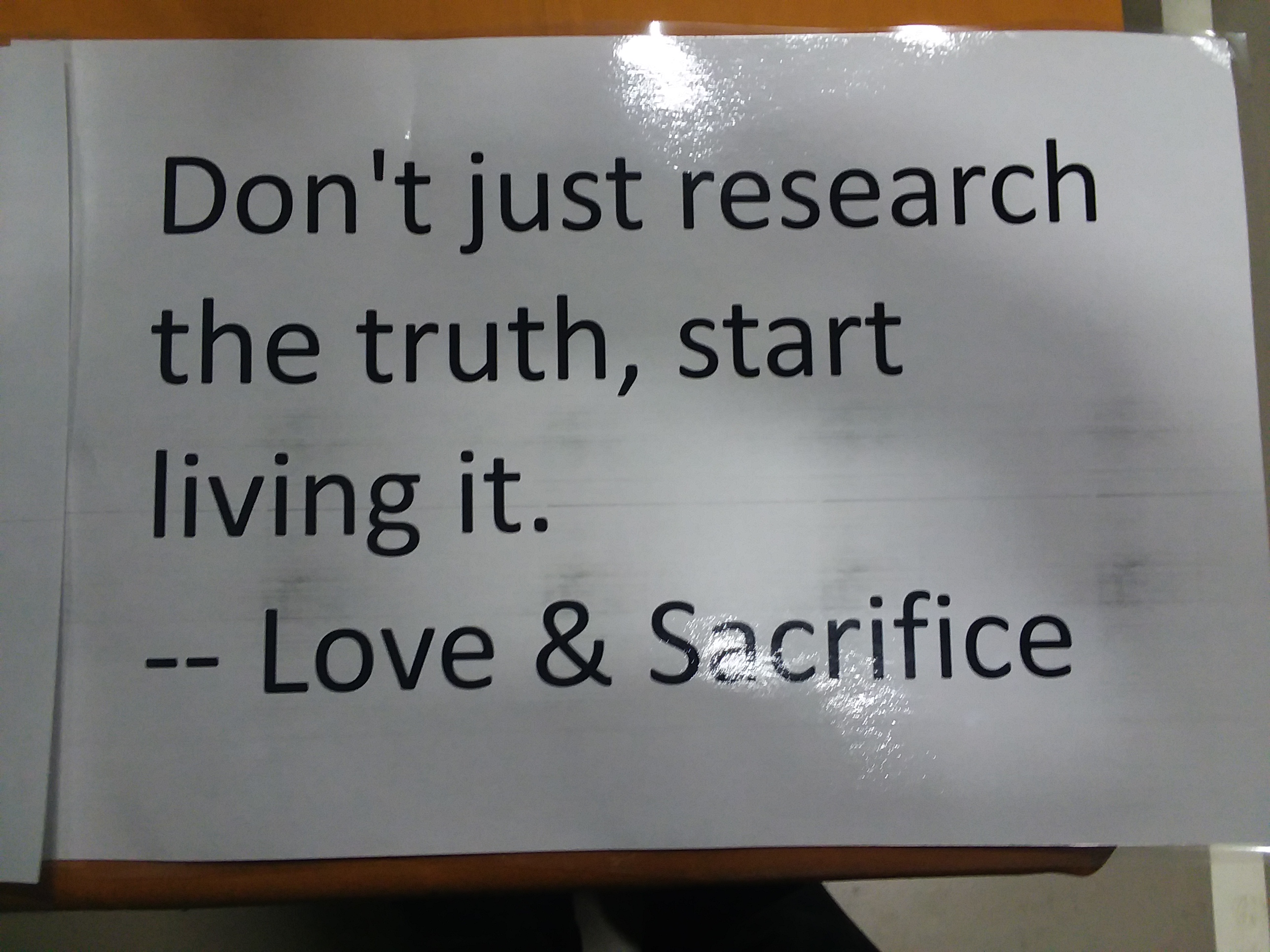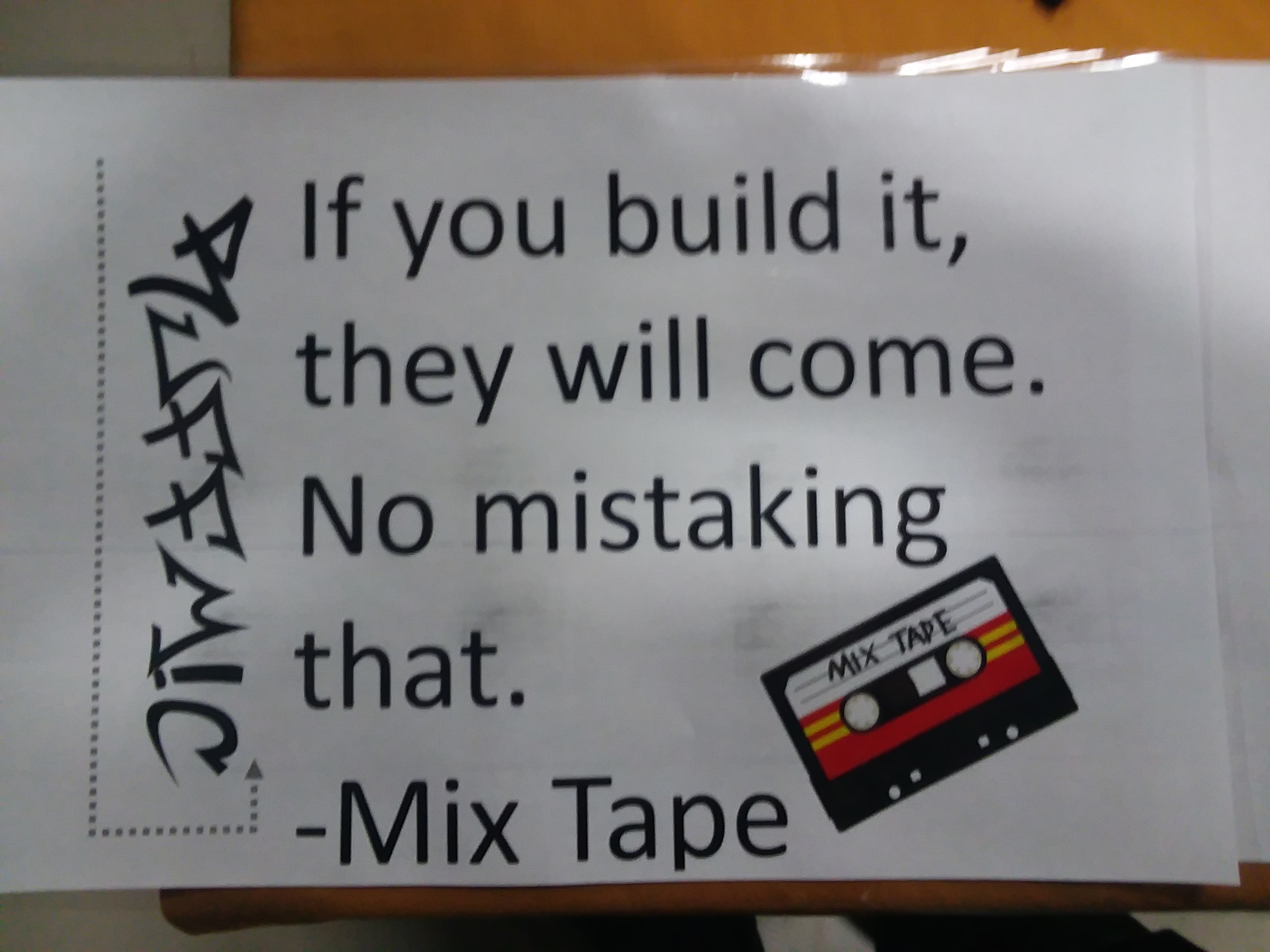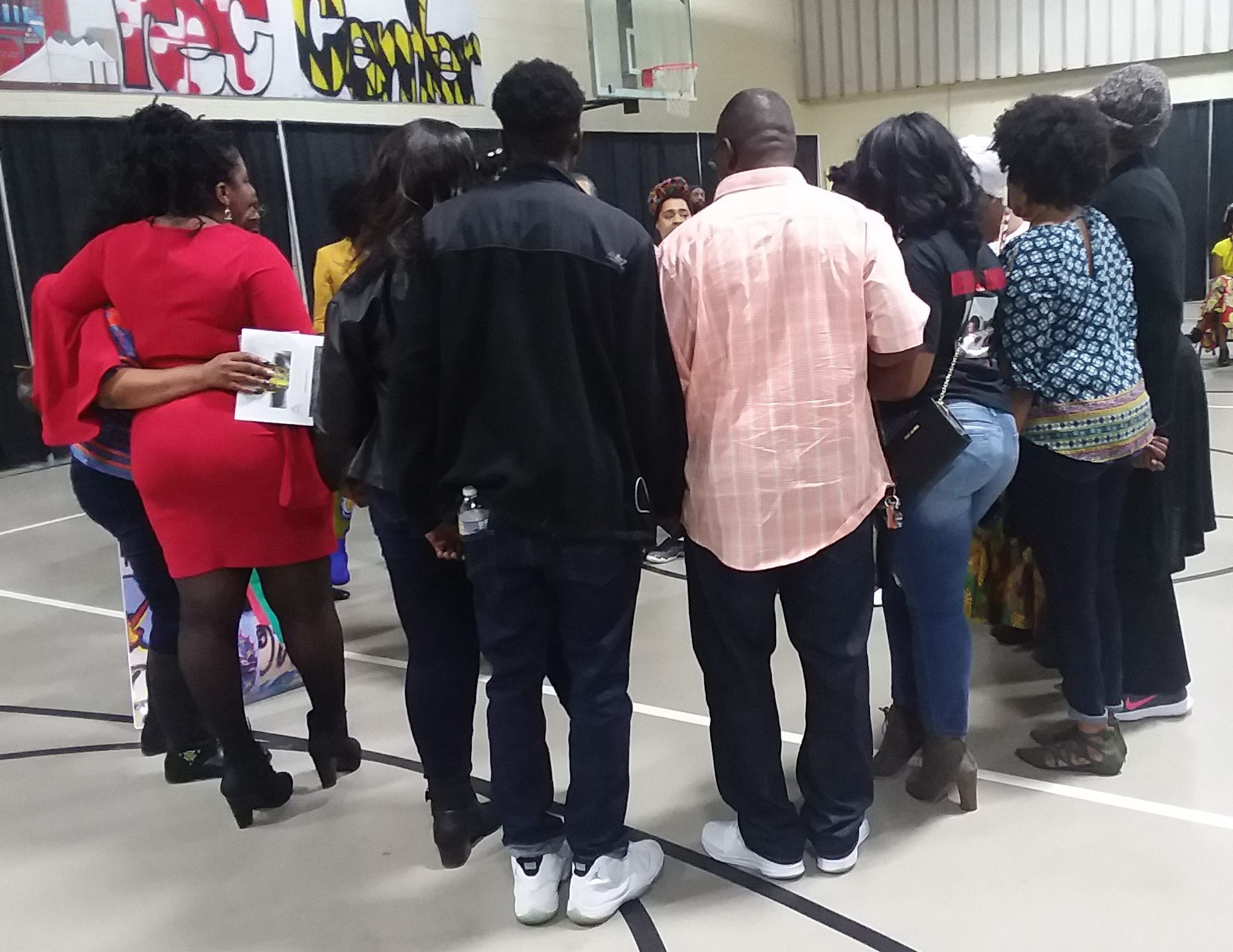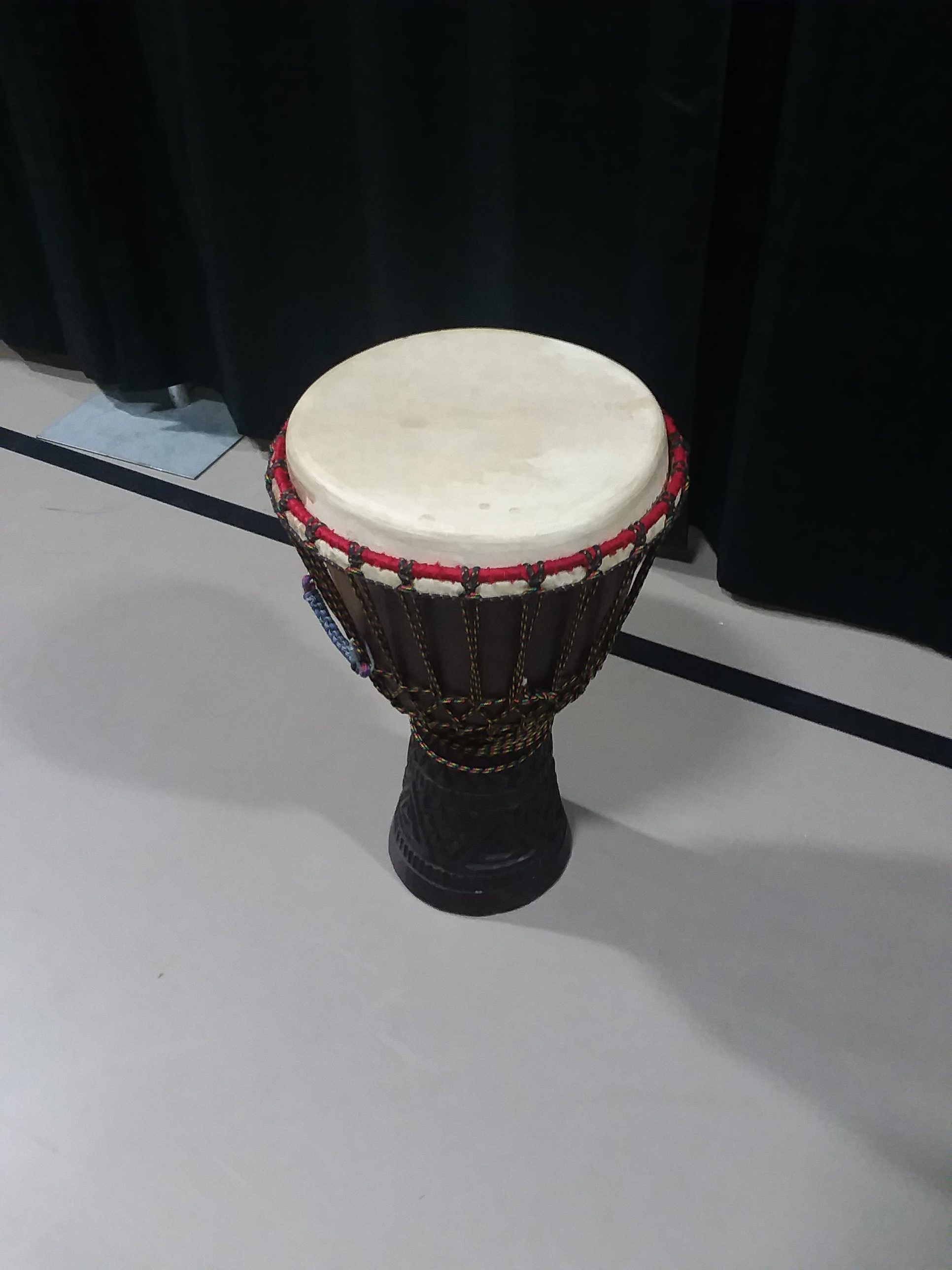On Friday, November 16 and Saturday, November 17, the Sixth Region Diaspora Caucus (SRDC) and the Maryland Council of Elders (MCOE) hosted the 2018 SRDC International Summit at the historic Great Blacks In Wax Museum. The actual meeting was held at the Mansion, located at 1649 East North Avenue, on the corner of North and Broadway in East Baltimore.
The Sixth Region Diaspora Caucus was founded as an international Pan-Afrikan organization as a result of the African Union’s 2003 invitation to the Afrikan Diaspora to become involved as potential voting members, and the holding of a Pan-Afrikan roundtable discussion among activists in Los Angeles in April of 2006. Its mission centers on the establishment of local, national and international groups dedicated to reaching out to the grassroots communities of people of Afrikan descent, establishing a Pan-Afrikan Agenda and electing a cadre of representatives to present that Agenda to international Pan-Afrikan bodies such as the African Union. A plan was developed and proposed by SRDC by which the local organizing committees can reach out to their communities and elect Representatives and Councils of Elders, who would in turn become potential spokespeople for the Pan-Afrikan Diaspora in international meetings. The Maryland Organizing Committee of SRDC was founded in 2007.
The Maryland Council of Elders was established at the December 2017 Pan-Afrikan Town Hall Meeting that was held by the Maryland Organizing Committee of SRDC. This is not the first time a Council of Elders has been established in Maryland, but so far it has been the most active, having presided over three Town Hall Meetings, the commemoration of Afrikan Liberation Day 2018, and now the 2018 SRDC Summit. Its members include Baba Rafiki Morris (Co-Chair), Mama Maisha Washington (Co-Chair), Mother Marcia Bowyer-Barron, Mama Victory Swift, Mama Abena Disroe, Baba Ishaka-Ra-Hannibal-El, Baba Kenyatta Howard, Dr. Ken Morgan, Baba David Murphy and Baba Ade Oba Tokunbo. Key activists who have worked directly with the MCOE to make the Summit a success include Bro. Brandon Walker, Bro. Ben Enosh, Sis. Kim Poole and Bro. Charles Jackson.
A number of local organizations were also involved in the planning and implementation of the Summit: Our Victorious City, the All-Afrikan Peoples Revolutionary Party (A-APRP), the Organization of Afro-American Unity Baltimore (OAAU), the Organization of All Afrikan Unity Black Panther Cadre (OAAUBPC), the Ujima Peoples Progress Party (UPP) and the Teaching Artist Institute (TAI).
The Summit’s objectives are also inspired by several international organizations: the Central American Black Organization (CABO), known in Spanish as the Organizacion Negro Centro Americana (ONECA); Per Ankh Smai Tawi from the Virgin Islands; the Mouvement International pour Reparation (MIR) from Guadeloupe; the Pan African Federalist Movement (PAFM); the African Union African Diaspora Council (AUADC) from Europe; the Middle East African Diaspora Unity Council (MEADUC) from Dimonas, Israel; the United Nations International Decade for People of African Descent; and the Pan African Diaspora Union (PADU).
Delicious and healthy food for the attendees was graciously provided courtesy of Sis. Ujimma Masani, founder of the organizations Brothers Who Can Cook and Sisters Who Can Burn as well as a member of the activist organization Working, Organizing, Making A Nation (WOMAN) and Mama Victory Swift, who provided much-needed financing for the food.
Special guests traveled far to participate in the Summit. Aside from the Organizing Committees from Los Angeles California, Charleston South Carolina, Seattle Washington, Guadeloupe in the Caribbean, The Netherlands and Dimonas Israel, delegations from The Gambia (Gambian Embassy), Liberia (Sehwah) and the African Diaspora Union (Afridu, based in South Africa), as well as representatives of Queen Mother Delois Blakely (New York) and the Pan African Federalist Movement made presentations to the audience during the two days of the Summit.
The first day started later than scheduled, largely because of delays in transporting the out-of-town guests from their hotels near the Marshall Baltimore-Washington International Airport to the meeting venue. In spite of the early chaos, the members of the Maryland Council of Elders, in particular, made sure the arriving delegates and community members were welcomed and that food was made available for attendees during both days of the Summit.
Future articles will discuss some of the statements and presentations made throughout the Summit. This article will concentrate on the opening remarks from SRDC’s founder, Professor David Horne, as well as the Co-Chair of the Maryland Council of Elders, Baba Rafiki Morris, and the former President-General of the UNIA-ACL, Baba Senghor Baye.
Baba Rafiki Morris
Co-Chair
Maryland Council of Elders (MCOE)
“My name is Rafiki Morris. I’m one of the co chairs of the Maryland Council of Elders, who along with the Sixth Region Diaspora Caucus is hosting this meeting today. I’m also an organizer for the All-Afrikan People’s Revolutionary Party, and so we’re going to exchange some views about the problems our people have, and try to approach some solutions over the next couple of days. We apologize for the late start, and hopefully we’ll catch up, because we have a lot of things to talk about.”
After Mama Abena Disroe and Baba Ishaka-Ra-Hannibal-El officiated the Tambiko (Libation), during which the Ancestors were recognized and honored, Baba Rafiki continued.
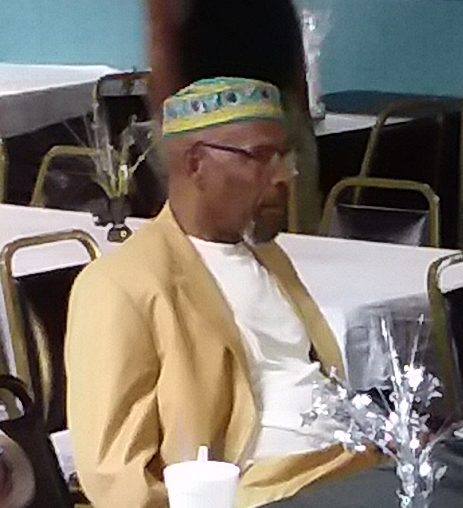 “In December of last year, the Sixth Region Diaspora Caucus pulled together some of us for what has come to be known as the Maryland Council of Elders. The Maryland Council of Elders consists of Brothers and Sisters from basically all walks of life and we were given a charge by the people who brought us into existence to choose one thing and do it well. It took us a while to examine the activities of the various organizations that made up our group, to find out what that one thing should be. We finally concluded that the best thing that we can do as Elders in a troubled community, is bring our people together. The best thing that we can do is forge unity among our organizations, among our community and among ourselves.
“In December of last year, the Sixth Region Diaspora Caucus pulled together some of us for what has come to be known as the Maryland Council of Elders. The Maryland Council of Elders consists of Brothers and Sisters from basically all walks of life and we were given a charge by the people who brought us into existence to choose one thing and do it well. It took us a while to examine the activities of the various organizations that made up our group, to find out what that one thing should be. We finally concluded that the best thing that we can do as Elders in a troubled community, is bring our people together. The best thing that we can do is forge unity among our organizations, among our community and among ourselves.
“And it is in that spirit that we have maintained our activity over these past several months … soon it will be a year. Wow. It’s been a long year. We did a lot of work in that year. And we have made some progress. It’s a funny thing about progress. You don’t always know that it’s happening, until somebody else says ‘I see whet you all did.’ And this is what’s been happening with the Council of Elders. I was up in Arch Social Club a couple of weeks ago, and one of the Brothers there — because we hadn’t been meeting there for a while — says, ‘Rafiki, no matter what you all do, make sure that you all stay here at Arch Social Club, because you all don’t know the impact that your presence has had on what we’re doing here.’ We didn’t know. But just our presence there, seniors in our community, meeting to talk about our problems, inspired the people around us to begin to do things to help our people.
“We took on two major activities outside of our Town Hall Meetings. The first one was Afrikan Liberation Day, and the second one is this Summit. We put a lot, a lot, a lot of hope, faith and confidence in this Summit. And we will tell you like we tell everybody, you see there’s a small amount of people here. We always tell folks, it’s not the size of the audience in the fight. It’s the size of the fight in the audience. And when I look out at this audience I see fighters. I see strugglers. I see people who are not content with the status quo. And if you are Afrikan on the planet Earth, one thing you should not be is content. Because it ain’t right what’s going on.
“So, we want to welcome you, but we want to welcome you with an understanding of what’s happening. We are dying. Our people are dying. In Baltimore, we lose almost four people a day, to gunshots and opioid overdose. More in opioid overdoses than gunshots. And Baltimore doesn’t have 500,000 people.
“They spend more money on police in Baltimore per capita than almost any city in the United States. Like 25% more. Sixty percent of the city’s budget is spent on policing. Now you know who they’re policing. They’re policing you. And they’re waiting for you to give them a reason to come kick your door in. This is the same process that they’re using in the Sudan, this is the same process that they’re using in West Afrika, this is the same thing that they’re doing in Venezuela, in Bolivia, in Colombia, in Trinidad, in every major city in the United States. It’s called counterinsurgency. Keep them down so they don’t rise up. This is what’s going on. This is what’s happening. This is a military operation. And you are the enemy. Some of us don’t want to acknowledge that we have enemies. But we definitely have enemies, and the only way to deal with our enemies is to get organized, and the only way to get organized is to set aside some of the petty differences that keep us divided, separated and apart from one another.
“So, it’s to address these issues that we are here today. And we would like for all of you to pay close attention, to involve yourselves in this discussion. This is not a series of lectures. This is a discussion. A dialog. That means you’ve got to talk and listen. Right? That’s what dialog is. It’s an exchange. And we’re here to exchange views. There are a lot of different formations and groups represented here, with different points of view. And we say all of these points of view have some validity. Because you don’t fight a revolution just one way. You fight a revolution in every possible way, at the same time. And this is what we have to do, and this is what we have to talk about.
“So without further ado, I would like to bring Professor Horne, who’s going to do our opening remarks, and thank you all for coming, hope you stay with us throughout these two or three days of activity, and give your best, because your people need it. Thank you very much.”
At this point, Professor Horne approached the podium to make his opening remarks, in which he gave a synopsis of the situation of Afrika, its connection to its Diaspora and the mission of SRDC.
Professor David Horne
Founding Member of the National Secretariat
International Facilitator
Sixth Region Diaspora Caucus (SRDC)
“Are Black people going to win? Will Afrika be united? Then, Hallelujah.
“My given name, by my parents, is David Lawrence Horne. I was given an Afrikan name three days ago, when I was in Liberia. I’ve always been of the belief, particularly with Afrika, that when you have done something that they can identify, they give you a name. In Afrika, names mean something. Names are significant. Quite often here, our names are just whatever is cute, whatever kind of fits. … And again, that’s part of an adaptation to this country. But we are Afrikan people. We were Afrikan people before. We were Afrikan people then. We are Afrikan people now. And we will be Afrikan people tomorrow.
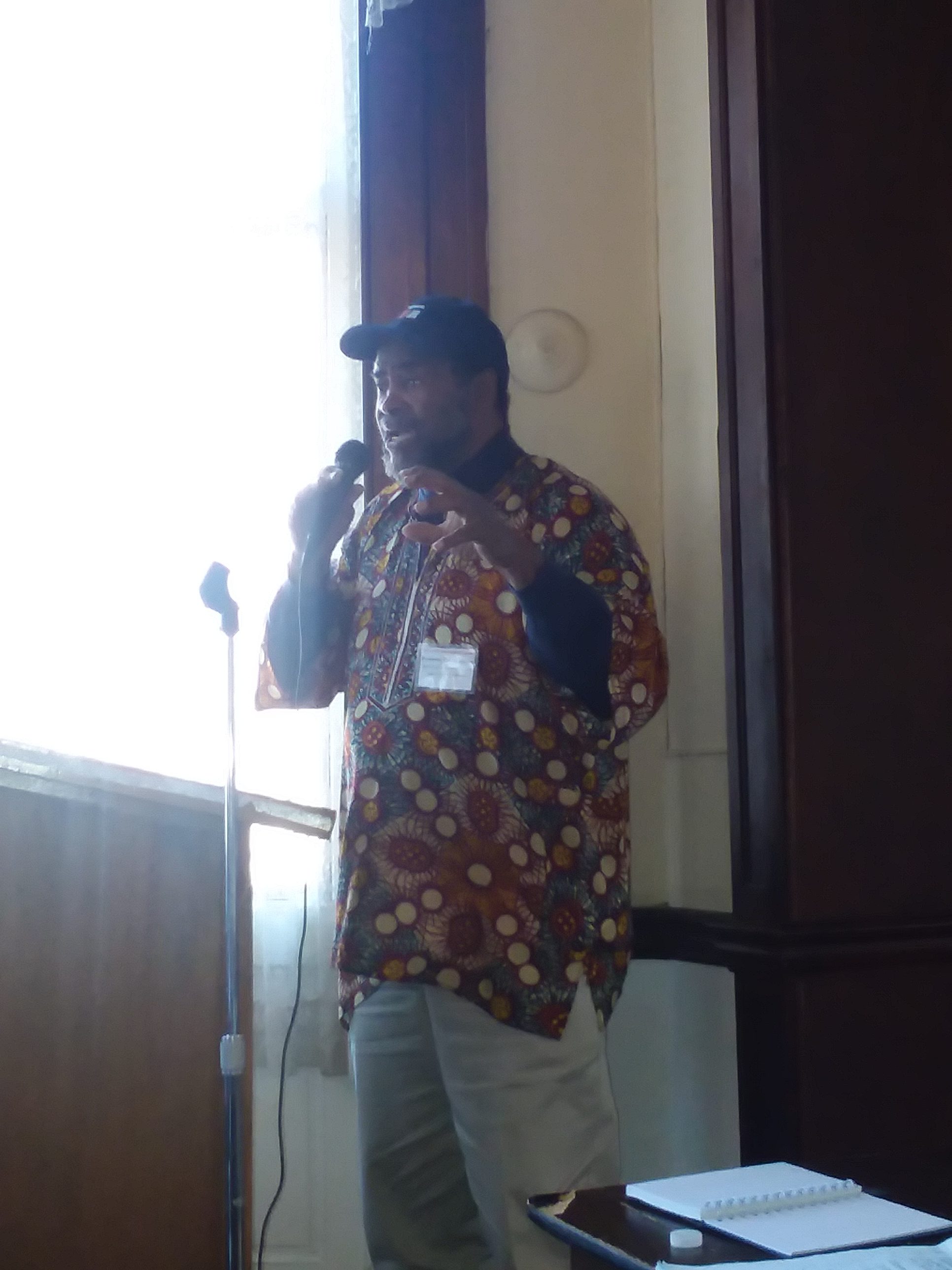 “Historically, everybody’s Afrikan. We all came from the Continent, even though White people don’t want to acknowledge it, even though they came from Afrika. We are the birthplace of mankind. Now, clearly, they don’t want to be Afrikan anymore, and we really don’t want them to be Afrikan anymore, because they don’t really represent us. But we who are Afrikan, whether we’re in Brazil, Suriname, Trinidad, Jamaica, Costa Rica, Nicaragua, Guatemala, Mexico, Baltimore, Los Angeles, no matter where we are, we are still Afrikan people. Israel — not all of Israel, just Dimonas — we are still Afrikan people, and part of our assignment, part of our reason for being here, in case we forget — and the Elder just reminded us of why we’re here, which is to have a discussion — but in case we forget why we’re here, it ain’t right. And it’s not going to be right until we correct it. Until we bring the balance back into the world. So, it may not be right before we leave this Earth, but it is our obligation to do everything we can in the short time that we can have to make sure we move it forward.
“Historically, everybody’s Afrikan. We all came from the Continent, even though White people don’t want to acknowledge it, even though they came from Afrika. We are the birthplace of mankind. Now, clearly, they don’t want to be Afrikan anymore, and we really don’t want them to be Afrikan anymore, because they don’t really represent us. But we who are Afrikan, whether we’re in Brazil, Suriname, Trinidad, Jamaica, Costa Rica, Nicaragua, Guatemala, Mexico, Baltimore, Los Angeles, no matter where we are, we are still Afrikan people. Israel — not all of Israel, just Dimonas — we are still Afrikan people, and part of our assignment, part of our reason for being here, in case we forget — and the Elder just reminded us of why we’re here, which is to have a discussion — but in case we forget why we’re here, it ain’t right. And it’s not going to be right until we correct it. Until we bring the balance back into the world. So, it may not be right before we leave this Earth, but it is our obligation to do everything we can in the short time that we can have to make sure we move it forward.
“It should be better, we should be further along the road, when each of us transition out of here. If we’re not doing that, then why are we here? Just to make a little more money? Just to get a bigger car? Just to party a little more? That’s a complete waste of damn time. If you’re not here to make this place better, you shouldn’t be here. Afrikan people have one job — to reclaim the land, and to reclaim ourselves. Afrika must be reunited. Afrika must come back together.
“I am part of a group that organized itself in 2006 called the Sixth Region Diaspora Caucus. I was lucky to found the organization and we’ve been moving and expanding ever since. The original objective of SRDC was to help get Afrikans who are not on the Continent — and again, we are trying to move away from this concept of the ‘Diaspora’; there are basically Global Afrikans, those on the Continent and those not on the Continent, but we’re all Global Afrikans — our responsibility was to figure out a way of showing the African Union that we were willing to accept their invitation. Now, we’ve been gone a long time. We’ve been scattered all over the place. We have all kinds of songs, all kinds of poetry, all kinds of writings remembering that. We all in here remember ‘Sometimes I feel like a motherless child / A long, long way from home.’ They were talking about us being away from Afrika.
“Well, in 2003, the African Union, the newest iteration of an organized Pan-Afrikanism, the newest organization to move us forward, about bringing Afrika together, that organization, in 2003, invited the Global Afrikans not living on the Continent to come back home. Not just to come back home to raise hell. Not to come back home to rob people, beat people up and bring some of these ills that we’ve learned away from home, to bring them back. No. They invited Afrikans to come back home and help to push Afrika to where it should be. We should all be talking about Wakanda. Afrika should already be there. We are supposed to be helping them get there. And the African Union invited us to come back home, to stop being like motherless children.
“But they would set up a procedure to do that. We then embarked on having Town Hall sessions, creating Councils of Elders so that we could get people in the community to decide who had been working in a Pan-Afrikanist way before this invitation. Who would now carry us further. And we’ve been working with trying to get into the African Union. There are supposed to be twenty delegate seats to join one branch of the African Union called ECOSOCC [the Economic, Social and Cultural Council]. ECOSOCC is an advisory part of the African Union. It makes no real executive decisions. It makes a recommendation for action.
“The African Union is a presidential-head-of-state organization. There are essentially 55 Afrikan countries. Actually 54, unless you count Western Sahara. Morocco does not count Western Sahara because it sees it as a colony. [People] don’t recognize colonies anymore. So [for us] there are 55 Afrikan countries. The heads of state make all the firm decisions.
“ECOSOCC, which is were the Global Afrikan Community called the Diaspora is supposed to come back in, and is supposed to become part of this discussion body, and make recommendations to move forward — they don’t know us anymore. We’ve been gone too long. A lot of us don’t know them. A lot still don’t have real relationships with Continental Afrikans. When they come here, you don’t invite them to barbecues. You don’t invite them to your churches. You don’t hang out with them, you don’t invite them to your parties. You know what I’m talking about. They have convinced us that the Continent is no longer a part of us. Afrikans don’t even know who we are. White people spend a whole lot of time bringing Afrikan guests in and keeping them in White communities. ‘Don’t talk to Black people; don’t talk to Afrikan-Americans because they will taint you, because they will get you messed up. They will take you to the ghetto and get you all into their life of crime.’ So while a lot of Afrikan guests have been brought in, and kept away from us, we have had our history books written by crazy people who taught us that we’re not Afrikan. ‘No, your history began when you got off the slave ship. That’s Black history.’ And that was a lie in and of itself. Number one, the people who got off that ship in 1619 were not slaves. And our history did not begin there anyway. We have a global authority. World history came from Black folks. …
“But they have tried to keep us divided. They have taught us a bunch of nonsense about each other. Part of the African Union’s job is to get rid of all that. They must change the whole educational system. In the 55 Afrikan countries, the educational system is still based on European values. They are still teaching young Afrikan kids about Galileo and a bunch of other White heroes. They don’t have Afrikan heroes in books, so that you can learn that Afrikans came up with mathematics, not White folks. That the first civilization was in Afrika, not in Europe. We don’t have that yet. So part of the African Union’s effort is to change the White educational system, just like we are changing our educational system. Just like too many of us still don’t know who we are and where we came from, and that we are worth something. It’s not supposed to be based on what White people say. …
“So, the SRDC was created to connect those who wanted to be recognized as Afrikans again. We’re the continental organization that was talking about real Pan-Afrikanism. This is the next iteration of Kwame Nkrumah and his dream. This is the next iteration of what Haile Selassie talked about. …
“The state of where we are now is that the African Union is still making major, major, major progress, but it is a bureaucratic organization, still run by heads of state, who still care much more about bringing in money for their family, and staying in charge, than they are worried about how to better govern the people, how do I make decisions that will help my individual country.
“We are still working on dual citizenship for us. I don’t know about the rest of you, but I want to have an option. When that orange man [in the White House] goes nuts — he’s not nuts yet, he’s just normal now for him — but when he goes nuts, I want to have a place to go, that loves me back … where I can be a citizen, where I can help develop something. I want to have an option. So a part of what SRDC is working on is dual citizenship, so we’re setting up negotiations in different countries. We’re working on this responsibility we have to reconnect ourselves to this Afrikan future.
“I just came from Liberia. The single Afrikan country that America colonized. In the 1884 European conference [known as the Berlin Conference–Editor] which colonized all of the Continent, except Ethiopia — South Sudan was not there, Eritrea was not there, they were not entities at that time — America was at that [1884 Berlin] conference. They didn’t take on any of the other territories, but they had already colonized Liberia. They had taught some Afrikan-Americans that ‘you can go back home, you can go back to Liberia. Just act like us.’ So some of us went home and acted like White folks and imposed ourselves on the native population of Liberia. Now I grew up seeing Liberia in every magazine all the time, talking about how things were getting good for Afrikan-Americans to return and if you wanted, you could go back and instantly become citizens. But it was a mess. It was a mess and it got to be a big mess and got to have a civil war. This country [the United States] dropped Liberia like a stone. Ignored them so their development went backwards instead of forward. And they are now in serious need.
“I’m a Pan-Afrikanist. I’ve been a Pan-Afrikanist most of my adult life. I’ve worked with a bunch of other Pan-Afrikanists. I understand why we ignored Nicaragua, Guatemala, Honduras. Because we can understand that some Black people spoke Spanish. I understand that we focused only on ‘Let’s Go Back To Tanzania, Let’s Go Back To The Continent’. I understand that. I do not understand why we ignore Liberia. Pan-Afrikanists should have been all over Liberia by now. But we were not, we have not been. And they need some serious help.
“So one of the things we’re doing right now is a big project. We are going to build a Public Library in Liberia. Liberia has no Public Libraries anywhere in the country. Not one. Shocking to think about, but in most Afrikan countries, a Public Library is not a big deal. They use their money to build streets and highways. We’re going to build a library, so the young people will have a place to go. … We’re going to build something from the Diaspora. That’s part of what SRDC is doing in partnership with Liberia. We need to understand, Liberia needs help and all of Afrika needs our help. We have to come back. We have to reconnect. That is what SRDC is about, that is what, essentially, this Conference has to be about.
“Yes, there have been wars [among activists] … word-wars between 2008, 2007 and now. [Some people] have been acting crazy, and have called people a bunch of names, and have gotten in the way of progress. Unfortunately, that is how we move forward. By moving backwards ten yards before we can move one yard up. [Ancestor and former Jamaican Ambassador and barrister] Dudley Thompson, who was the President of WADU [the World African Diaspora Union, another prominent Pan-Afrikan organization] before his untimely death, was a great, great man. He had done innumerable things which we have to give him credit for. And he [and other recent Ancestors deserve] much more than the nonsense we have heard on the Internet. A lot of you have read foolishness about who is doing what and who is not doing what, who is a CIA agent and who is basically sleeping around. All of that gets in the way and should be ignored.
“We must have projects. We are now going to connect with the African Union and we’re going to connect with this whole effort to re-unify Afrika. Afrikan must be unified. We’re going to connect to that, not by just going through the bureaucratic [organizations]. We want our twenty seats in the African Union. We’re not letting that go. But we’re not going to say that this is the only way that we’re going to handle this.
“We are going to do project-by-project. We are going to show you that we are so valuable that you cannot ignore us. We have a representative here, Dr. Barryl Biekman, from Europe, who represents at least 25 years of trying to organize [Afrikans living in] Germany, The Netherlands, France and other European countries to do the same thing, because Afrikan people are everywhere. We are fighting through the nonsensical name-calling to get to the real, purposeful action forward. That is what SRDC has been about. SRDC has a very, very strong connection to our European counterpart, we are working with folks in the Caribbean, we’ve actually traveled to Brazil, we’ve gone to Canada, we’ve gone around trying to tell people Afrika Says Come Back. They’re ready. Get ready to help.
“Dr. Khazriel [Ben Yehuda, from Dimonas, Israel], who is the head of the Afrikans in Israel, has been working with SRDC and the European Pan-Afrikanists to make us understand that there are Black Palestinians, there are Black Bedouins, there were Black people in what White people like to call Israel long before those people showed up.
“We’re a historical people. We’re the bedrock. And that bedrock is now rising back to the surface where it belongs.
“We must understand something about science. Climate change means they all are going to come running to Afrika. The cold weather [that is expected to result in the polar regions when the planet’s heat-exchange mechanism breaks down] is going to kill all of them off. All of them are going to come back to the Equator. When they come, they are going to come to reclaim, retake it. And we’ve got to be ready for that. They’re coming for everything that we have. If we have not reconnected ourselves to that Continent, we have given away the future of the Afrikan people, and we cannot allow that.
“The Conference this weekend is about How do we move forward along that pathway? How do we reconnect with Afrika? How do we do something tangible? How do we make some decisions that will not only impact why we are killing each other here [but also] how we will stop killing each other over there?
“And we have a representative from a group called Afridu [the African Diaspora Union, based in South Africa], which has said they want to reconnect with us as we reconnect to Afrika. They want to be our eyes and ears in the Pan African Parliament [which] was set up to become the legislative body for the entire Continent. Once you get to a Union Government or a Federalist Government, you’ve got to have a legislative body. The Pan African Parliament was established to do that. Right now they meet two or three times a year and they make recommendations but the recommendations are not always listened to by the heads of state. But they are firm in what they are trying to do. They understand Reparations. They understand that Afrikans from here want land and Reparations and they have discussed it. They have discussed the whole issue of human rights being imposed on them. … Afrikan culture, most of it, is not into the gay lifestyle, and the Pan African Parliament has had a number of discussions about [LGBTQ issues]. So the Pan African Parliament is going to become the legislative body for the entire Afrikan Continent. So we have a group, Afridu, that is working with us in the Pan African Parliament.
“In the 2012 Global Diaspora Conference, that was held in South Africa, part of the decision making was that the Diaspora could become Observers. If you were willing to pay your airline tickets and take time out from your job, you could become Observers at any of the African Union activities. You can do interviews. You can go to the Pan African Parliament. You can go to meetings of ECOSOCC … and then come back and talk to your home group about what happened at the meetings. If you’re willing to put in the time and spend the money, you can do it. We have not taken advantage of it. So for the most part, we don’t know what’s going on in Afrika. And we need to know.”
[On the question of how we can move forward in the face of movements such as #MeToo, the Women’s Movement, Blexit and various White Supremacist-inspired actions without falling behind and running out of time:] “We will get our 20 delegate seats [within the next two years]. [Also. US President] Donald Trump will be impeached. … [US Vice President Mike] Pence was involved in the skullduggery that got Trump elected in the first place [so he could be impeached as well]. …
“The plan that we came up with for building community, the Town Halls and the Community Council of Elders, that is still the best plan out there. There is not any place in the world where Global Afrikans live which has come up with a better plan than this. The people who were in charge of selecting how to organize the Global Afrikans kept assigning people that they liked, as opposed to assigning people who knew what they were doing, and so that got in the way. We have now been able to kill that. We now deal directly with African Union officials. The process will be in place to decide on those 20 delegate seats before the end of 2019. And for those coming from the United States, no, we are not getting 19 of the 20 seats, as some of my friends have said. … The United States may get four, maybe. Brazil’s going to get three or four. But anyway, we’ve got to divide them up.”
[On the need to check our tendency for American arrogance in dealing with Afrikan leaders and communities:] “In 1974 we went to the Sixth Pan African Congress in Tanzania. There were 350 of us. There were more delegates from the United States than there were from the rest of Afrika. Our first week there, we went to every meeting, every conference, and raised hell. ‘You Afrikan presidents don’t know what you’re doing. You don’t know how to lead. You don’t know how to take Afrikans to the next level.’ We basically came in storming. At the end of that first meeting, [Guinean President] Sekou Toure sent his foreign minister in to talk to us. Sekou Toure was our major hero at the time. The foreign minister came in and said ‘My dear Afrikan Brothers, we are honored by your presence here, that you are coming back to show us how much you care about Afrika. But trust me when I tell you, sit down and shut up. Not one of you has ever run a country. Not any of you has ever had to face decisions about what to do with the thousands of people who are … in a particular area. You don’t know what you are talking about, coming here and telling us about how we have to have Scientific Socialism here, we need to have trade relationships there. Sit, listen and learn.’ Governance is hard. Trying to be able to maintain your country and not lose it is hard.
“That’s why we talk about how the African Union has made some progress, and it has. They have just passed something that no one thought possible: the Continental Free Trade Agreement, which means the entire Afrikan Continent will now start trading with each other, as opposed to focusing all their trade relations with what comes from Europe. To hear that Nigeria was importing rice every day to feed its people, that’s crazy. We taught the world about rice. Afrikans need to trade with each other and value what Afrikans produce. They have now made that agreement. They are now going to pull that off. Nobody would have thought that possible 15 years ago.
“There is progress being made. But it is, first of all, identifying what issue you can tackle, pull all your resources together, tackle that issue, then move on to the next one. You need to address these issues in your own communities, with your own Councils of Elders, so we can get together and pool the resources of all this wisdom. That is what this whole collective effort is all about. This is not a game. This is not going to be easy. This is a lifetime commitment.”
Baba Senghor Baye
Assistant Manager, Harambee Radio
Former President-General, UNIA-ACL
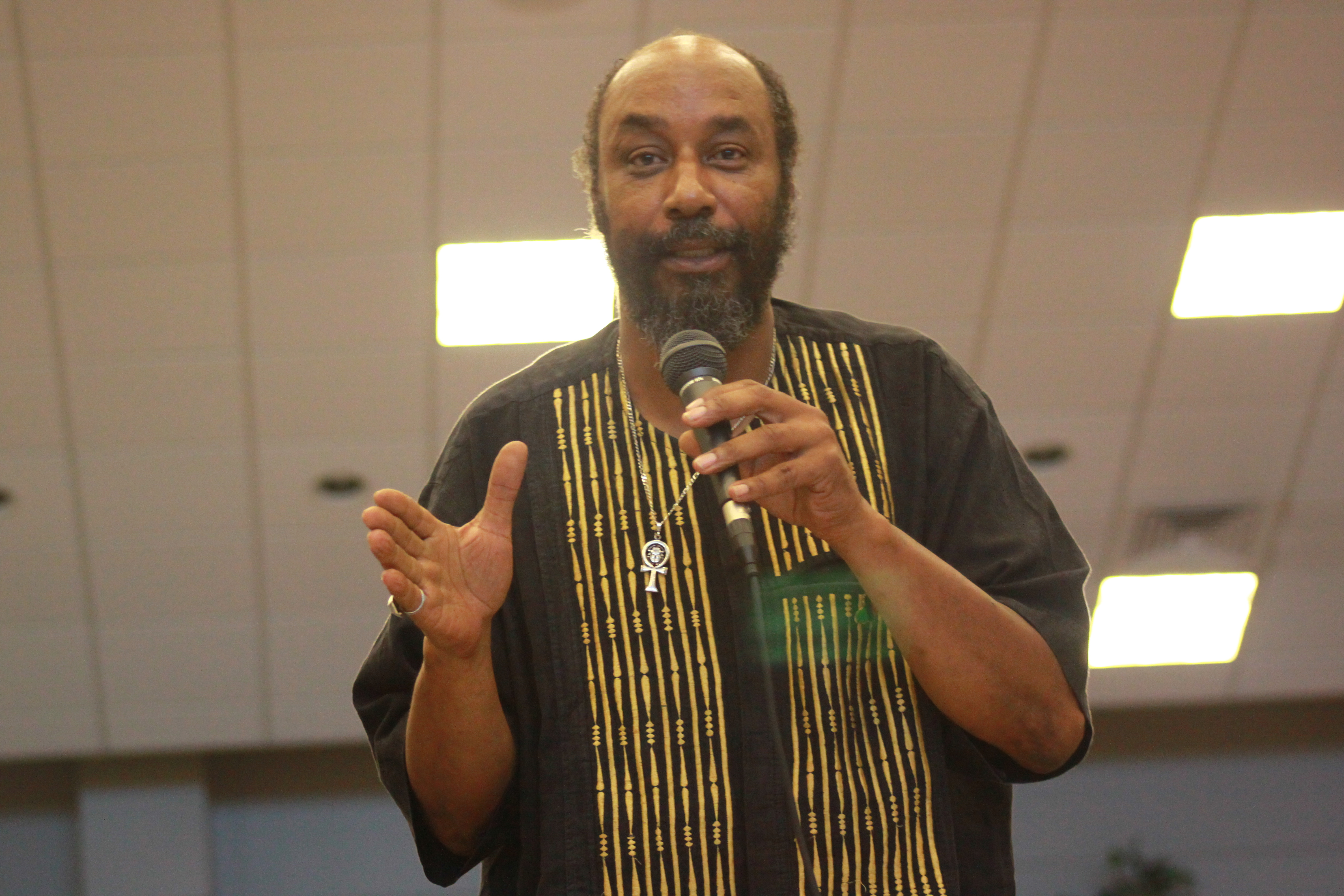 “First of all, this [Professor Horne] is my Brother here, and when we say SRDC, I’m with that. We worked with the UNIA for many years and are still with the UNIA. He served as International Organizer, I served as President-General. But I want my Brother to understand that there’s a movement taking place. Not in an organization, but a grassroots global movement, called the Pan African Federalist Movement. The head of the Regional Initiating Committee of North America will be here tomorrow. But I’m very much involved with that movement on the international, national and local level. So what I want you to understand, if we’re talking about people under 39, they are rising up. But they need the wisdom of those of us that know what has been going on, and know what can go on if we don’t do what we’re supposed to do. So all these [competing] movements we’re talking about, we’ve got a movement coming.
“First of all, this [Professor Horne] is my Brother here, and when we say SRDC, I’m with that. We worked with the UNIA for many years and are still with the UNIA. He served as International Organizer, I served as President-General. But I want my Brother to understand that there’s a movement taking place. Not in an organization, but a grassroots global movement, called the Pan African Federalist Movement. The head of the Regional Initiating Committee of North America will be here tomorrow. But I’m very much involved with that movement on the international, national and local level. So what I want you to understand, if we’re talking about people under 39, they are rising up. But they need the wisdom of those of us that know what has been going on, and know what can go on if we don’t do what we’re supposed to do. So all these [competing] movements we’re talking about, we’ve got a movement coming.
“In 1958, when Kwame Nkrumah called Brothers and Sisters together for the first Afrikan Peoples Conference, there was a plan. … There were other plans that did not properly manifest. We’re talking about the grassroots plan of the people rising to power to address the issues from the bottom up.
“From December 8 to December 13 this year, we’re meeting in Accra, Ghana, along with the Kwame Nkrumah Center, led by Samia Nkrumah and others and the Pan African Federalist Movement. Thus far, representatives from 36 countries have registered. … David will be there with me and others. So, many of us are coming together to address the issues that our Ancestors put in place. They knew that the grassroots had to rise up. Unfortunately, many of the grassroots don’t realize how much power they have to go up against those other movements in terms of … the truth of Mother Afrika. So, in spite of what the countries may do, despite what happens from the top down, we’re coming from the bottom up. And that means there’s going to be change, regardless. So I want to make it clear, sometimes we put too much emphasis on others’ movements, and then we don’t concentrate on building our own movement. Young people are sick and tired of the foolishness, but they don’t have the wisdom, they don’t necessarily have the clear picture of what our Ancestors laid down. And this movement I’m talking about is led by those Ancestors. … We need to study and bring all that together, and build power from the bottom up. And whatever happens from the top is going to happen, but Dr. Horne assured us, we say by the next generation, we’re going to take Afrika back and unify Afrikans.
“Now, there’s going to be hit-back. Let’s be clear. But we don’t have a choice. By 2020, it will be 100 years [since] Marcus Garvey brought 25,000 delegates from all over the world together in Harlem, and the same objective they had. So we’re not far behind. Now we’ve got to catch up. But don’t be content. … Afrika’s gonna win.”
Later on Friday and Saturday morning, the various SRDC organizations from Seattle, Washington, Charleston, South Carolina and Baltimore, Maryland made presentations on their activities over the last year. The Saturday session also featured presentations by delegations from The Gambia, Liberia and the Pan African Federalist Movement, as well as an address by the Community Mayor of Harlem, Queen Mother Delois Blakely. Check back with this site over the next week or so for more articles from the 2018 SRDC International Summit.
Like this:
Like Loading...
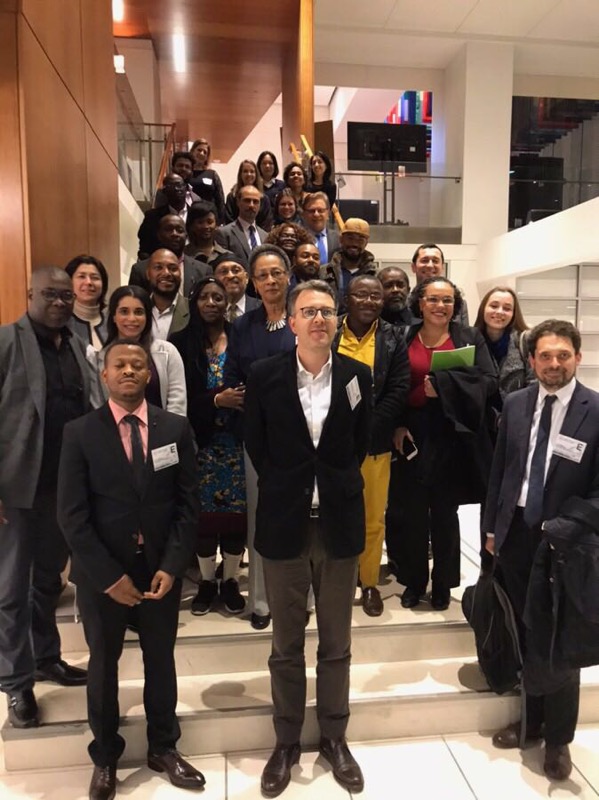
 Consultation of the Regional Mechanisms of Human Rights in the Americas and the United Nations Human Rights Mechanisms to Combat Racism, Racial Discrimination, Xenophobia and Other Related Forms of Intolerance
Consultation of the Regional Mechanisms of Human Rights in the Americas and the United Nations Human Rights Mechanisms to Combat Racism, Racial Discrimination, Xenophobia and Other Related Forms of Intolerance
 “In December of last year, the Sixth Region Diaspora Caucus pulled together some of us for what has come to be known as the Maryland Council of Elders. The Maryland Council of Elders consists of Brothers and Sisters from basically all walks of life and we were given a charge by the people who brought us into existence to choose one thing and do it well. It took us a while to examine the activities of the various organizations that made up our group, to find out what that one thing should be. We finally concluded that the best thing that we can do as Elders in a troubled community, is bring our people together. The best thing that we can do is forge unity among our organizations, among our community and among ourselves.
“In December of last year, the Sixth Region Diaspora Caucus pulled together some of us for what has come to be known as the Maryland Council of Elders. The Maryland Council of Elders consists of Brothers and Sisters from basically all walks of life and we were given a charge by the people who brought us into existence to choose one thing and do it well. It took us a while to examine the activities of the various organizations that made up our group, to find out what that one thing should be. We finally concluded that the best thing that we can do as Elders in a troubled community, is bring our people together. The best thing that we can do is forge unity among our organizations, among our community and among ourselves. “Historically, everybody’s Afrikan. We all came from the Continent, even though White people don’t want to acknowledge it, even though they came from Afrika. We are the birthplace of mankind. Now, clearly, they don’t want to be Afrikan anymore, and we really don’t want them to be Afrikan anymore, because they don’t really represent us. But we who are Afrikan, whether we’re in Brazil, Suriname, Trinidad, Jamaica, Costa Rica, Nicaragua, Guatemala, Mexico, Baltimore, Los Angeles, no matter where we are, we are still Afrikan people. Israel — not all of Israel, just Dimonas — we are still Afrikan people, and part of our assignment, part of our reason for being here, in case we forget — and the Elder just reminded us of why we’re here, which is to have a discussion — but in case we forget why we’re here, it ain’t right. And it’s not going to be right until we correct it. Until we bring the balance back into the world. So, it may not be right before we leave this Earth, but it is our obligation to do everything we can in the short time that we can have to make sure we move it forward.
“Historically, everybody’s Afrikan. We all came from the Continent, even though White people don’t want to acknowledge it, even though they came from Afrika. We are the birthplace of mankind. Now, clearly, they don’t want to be Afrikan anymore, and we really don’t want them to be Afrikan anymore, because they don’t really represent us. But we who are Afrikan, whether we’re in Brazil, Suriname, Trinidad, Jamaica, Costa Rica, Nicaragua, Guatemala, Mexico, Baltimore, Los Angeles, no matter where we are, we are still Afrikan people. Israel — not all of Israel, just Dimonas — we are still Afrikan people, and part of our assignment, part of our reason for being here, in case we forget — and the Elder just reminded us of why we’re here, which is to have a discussion — but in case we forget why we’re here, it ain’t right. And it’s not going to be right until we correct it. Until we bring the balance back into the world. So, it may not be right before we leave this Earth, but it is our obligation to do everything we can in the short time that we can have to make sure we move it forward.  “First of all, this [Professor Horne] is my Brother here, and when we say SRDC, I’m with that. We worked with the UNIA for many years and are still with the UNIA. He served as International Organizer, I served as President-General. But I want my Brother to understand that there’s a movement taking place. Not in an organization, but a grassroots global movement, called the Pan African Federalist Movement. The head of the Regional Initiating Committee of North America will be here tomorrow. But I’m very much involved with that movement on the international, national and local level. So what I want you to understand, if we’re talking about people under 39, they are rising up. But they need the wisdom of those of us that know what has been going on, and know what can go on if we don’t do what we’re supposed to do. So all these [competing] movements we’re talking about, we’ve got a movement coming.
“First of all, this [Professor Horne] is my Brother here, and when we say SRDC, I’m with that. We worked with the UNIA for many years and are still with the UNIA. He served as International Organizer, I served as President-General. But I want my Brother to understand that there’s a movement taking place. Not in an organization, but a grassroots global movement, called the Pan African Federalist Movement. The head of the Regional Initiating Committee of North America will be here tomorrow. But I’m very much involved with that movement on the international, national and local level. So what I want you to understand, if we’re talking about people under 39, they are rising up. But they need the wisdom of those of us that know what has been going on, and know what can go on if we don’t do what we’re supposed to do. So all these [competing] movements we’re talking about, we’ve got a movement coming.





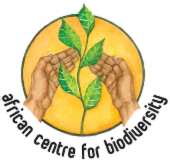

 The story is an intriguing one and British historian Simon Schama’s book
The story is an intriguing one and British historian Simon Schama’s book
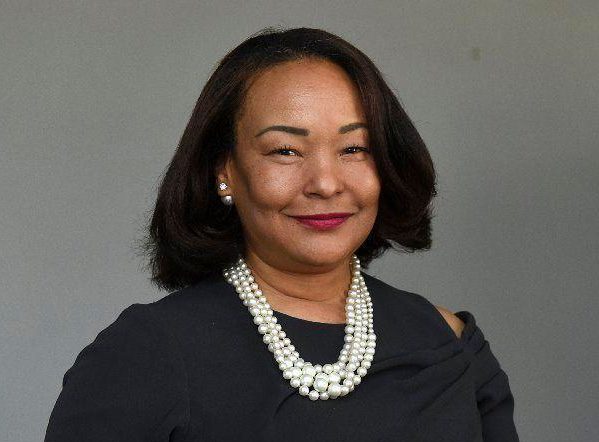 leader Walter P. Carter and the current front-runner for the Maryland Senate in the 41st District. She is looked to by some to bring a measure of sanity and commitment to grassroots community issues, particularly those that impact the Afrikan and Afrikan-Descendant community, to the Maryland Legislature. (Examples include stands against mass incarceration of youth, advocacy for police oversight, and her opposition to the
leader Walter P. Carter and the current front-runner for the Maryland Senate in the 41st District. She is looked to by some to bring a measure of sanity and commitment to grassroots community issues, particularly those that impact the Afrikan and Afrikan-Descendant community, to the Maryland Legislature. (Examples include stands against mass incarceration of youth, advocacy for police oversight, and her opposition to the 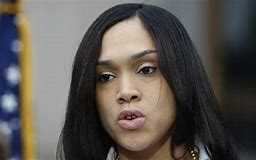 The first is to be found in the race for the Democratic nomination for State’s Attorney for Baltimore City. The two front-runners are the incumbent, Marilyn Mosby (pictured, left), and her main primary challenger, attorney Ivan Bates. I know of respected people in the community, and among activists, who back both candidates.
The first is to be found in the race for the Democratic nomination for State’s Attorney for Baltimore City. The two front-runners are the incumbent, Marilyn Mosby (pictured, left), and her main primary challenger, attorney Ivan Bates. I know of respected people in the community, and among activists, who back both candidates. 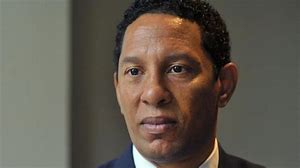
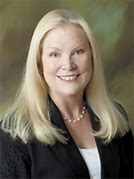 fool the voters” into seeing him as a progressive Democrat, despite the fact that he supposedly had voted against gun-control legislation up to ten times and had received an “A” rating from the National Rifle Association (NRA), along with significant campaign contributions from them.
fool the voters” into seeing him as a progressive Democrat, despite the fact that he supposedly had voted against gun-control legislation up to ten times and had received an “A” rating from the National Rifle Association (NRA), along with significant campaign contributions from them. 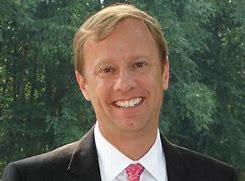 allowed him to finally vote in favor of the legislation as “window dressing” without alarming NRA supporters. Firmin DeBrabander, however, in an April 5 commentary in the same Baltimore Sun (“Could the Baltimore County executive race come down to NRA support?”, at
allowed him to finally vote in favor of the legislation as “window dressing” without alarming NRA supporters. Firmin DeBrabander, however, in an April 5 commentary in the same Baltimore Sun (“Could the Baltimore County executive race come down to NRA support?”, at 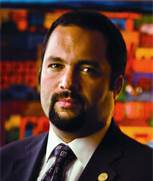 These two campaigns, in particular, present a contrast to the Maryland gubernatorial race, which seems to have concentrated on the leading candidates — former NAACP Executive Director Ben Jealous (pictured, left) and Prince Georges County executive Rushern Baker (pictured, below) — and those seeking to catch them in later polling (former Michelle Obama aide Krish Vignarajah, author and former Obama administration official Alec Ross, state senator Rich Madaleno, and the Baltimore-based Jim Shea-Brandon Scott team) emphasizing their campaigns’ commitments to reverse the more objectionable aspects of current governor Larry Hogan’s direction for Maryland by backing gun control, legalization of marijuana, aid for the schools and improvements in the training and behavior of police rather than attacking each
These two campaigns, in particular, present a contrast to the Maryland gubernatorial race, which seems to have concentrated on the leading candidates — former NAACP Executive Director Ben Jealous (pictured, left) and Prince Georges County executive Rushern Baker (pictured, below) — and those seeking to catch them in later polling (former Michelle Obama aide Krish Vignarajah, author and former Obama administration official Alec Ross, state senator Rich Madaleno, and the Baltimore-based Jim Shea-Brandon Scott team) emphasizing their campaigns’ commitments to reverse the more objectionable aspects of current governor Larry Hogan’s direction for Maryland by backing gun control, legalization of marijuana, aid for the schools and improvements in the training and behavior of police rather than attacking each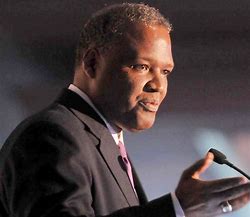 other. But the odds are, even if the candidates for governor do not resort to negative campaigns against each other in the primaries, that tone could well change in the general election when the victor goes up against a Republican incumbent governor who has received an unusual amount of support from Democratic voters and Afrikan-American citizens and community activists.
other. But the odds are, even if the candidates for governor do not resort to negative campaigns against each other in the primaries, that tone could well change in the general election when the victor goes up against a Republican incumbent governor who has received an unusual amount of support from Democratic voters and Afrikan-American citizens and community activists.